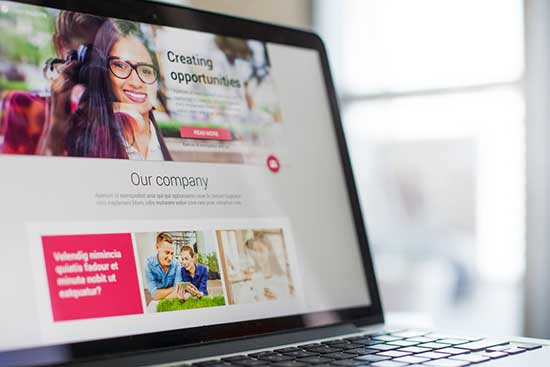Being self-employed is the dream of countless Americans.
The idea of working from home, with no boss to worry about. Being able to choose your own office hours and pick those who you work with… It’s a very enticing dream! But the leap from being an employee to starting your own coaching business can feel like an impossible one. From fears related to financial security to the concern of starting all over, it’s a huge step. As someone who once made that leap, I understand entirely.
As the owner of a coaching business, everything is on you. Where you work from. How much you charge. Who you work with. Where you’ll allocate your marketing dollars. And most importantly, how you will get paying clients.
But for some, it’s a dream come true. The freedom to bring their whole self into their work and create the life they truly want to live.
Here are a few things you may want to consider before you decide to take the leap to start your own coaching business:
Never Go It Alone
Talk to any successful business owner and they’ll say “Do your research! Start with a coaching business plan and marketing strategy.” This is especially important if you are entering into an industry that you are not familiar with.
But what most neglect to share is that they didn’t go it alone. As a coach, you already know the power of what’s possible because of a highly collaborative partnership. While you can certainly download business plans for free, browse other coaching websites and model your business after others, you may want to pause for a moment and ask yourself: Who’s got your back? Sure, friends and family are on your side, but what I’m talking about is who is going to help you with your business? You’re going from a job where you likely have a team, a manager, etc. to one where you’re going at it alone. Now that it’s just you, you need your own team.
Partnering with a seasoned business coach, one who’s traveled the road you are about to journey upon, can be just the valuable asset you need to get your business humming.
When I first started my coaching business, my background was in marketing. We built websites for many thought leaders and other innovative businesses. The problem was that, once I started looking at my competition in this new field, I started to get discouraged about my chances of “making it.” They all had polished, well-written, and user-friendly websites, leading me to believe that the market was saturated. My own insecurities about going from being a globally-recognized marketing strategist to a business and marketing coach consumed my mind. To be completely honest, I nearly didn’t do it.
So, I decided to hire a business coach to help keep me on track and in perspective. It turns out that getting a coach was an essential element to my success story. As a coach yourself, you might guess that most of our work wasn’t in marketing strategy. Instead, it was with my often fear-infected mindset. And that’s something we all struggle with.
Set Yourself Up for Success
Fear is a powerful driver.
For me, fear drove me to become my own boss. Yes, that sounds a bit paradoxical. For most people, having the stability of a paycheck is ideal. My fear was a little different. I once watched the owner of the company I worked for make some really terrible decisions, leading to a round of layoffs. It was eye-opening.
I didn’t want my paycheck to rely upon someone else’s decisions or mistakes. Yes, I had insurance and a 401K in the making, but with proper planning, you can take care of that on your own. Just add up what you can make on your own, and you’ll soon be investing in your own healthcare and retirement. The only difference is you’ll be choosing the providers and financial firms, possibly even saving you money.
But, back to my point:
Prior to starting your coaching business and taking that amazing leap, you need to set yourself up for success. First, create a nest egg. You need to save up or have other plans for income while you go through the start-up phase of your business. It will not only help you carry yourself over that difficult period, but will also give you peace of mind that your back will be covered in the event of emergency.
Next, you must tighten your financial belt. Take a close look at your monthly budget and create a “Future Coaching Business Fund.” Be sure to talk with your spouse and relatives about your plans; they might be able to help! For example, my younger brother loaned me the money to buy my first computer. Yes, that’s a little embarrassing to admit, but look at what I’ve created with that loan!
All of this leads me to my favorite exit strategy of leaving your current business…
Do It in Stages
Ok, so the leap from being gainfully employed by a company to being self-employed might look terrifying. It could be too long a leap to make in one jump. So… don’t. Instead, take a series of smaller leaps that will get you to the same goal. How? Simple: turn your future business into a part-time job.
Now, this isn’t the fastest way to do things, but it can be a smart option if you aren’t currently in a position where you can walk away from your job. By treating your business as a part-time job, you can lay the groundwork for a future where you CAN leave your current employment. Think of this as planning your exit strategy!
What’s important is that you treat this as a part-time job, NOT as a hobby. This isn’t something that you can do every second day when you feel like it. If you want to create your own business, then you’re going to have to be prepared to put in the work when you get home from your primary job. This can be exhausting, absolutely. But it can also be worth it as you get ever closer to the day when you can quit and become your own boss!
Set a Schedule
The beauty of a 9 to 5 job is right there in the name: it’s 9 AM to 5 PM. While you might have to take home a few reports now and then, chances are that quitting time at 5 is the end of your workday. As a self-employed person, you don’t have that kind of built-in structure.
If you own a business, you don’t have to follow a shift schedule, and you don’t have to quit at 5. You can work whenever you want. Unfortunately, this often leads to entrepreneurs, small business owners, and freelancers to work WAY too much or too little.
To be self-employed, you need to have the discipline to set your own schedule and stick to it. Yes, you might have to do some overtime (like you would any job), but working 9 AM to 9 PM 7 days a week can get unhealthy very quickly.
But working 10a-4p and having plenty of time for meditation, yoga or the gym as well as friends and family. That’s the ticket!
How’s that possibility sounding right now?
If there is one thing that I want you to take away, it’s this: starting your own coaching business doesn’t need to be a BIG LEAP!
You don’t need to turn your entire life upside down and take impossible risks to follow your dreams. In fact, I don’t recommend it.
By doing your research, creating a business plan, strategizing with a coach or mentor, and making it your part-time job ahead of quitting, you can mitigate the risks and follow that path you were always meant to!
And if you need a little help following that path, that’s what I’m here for. I can give you expert guidance that will lead you down the path of becoming the coach you’ve always wanted to be. Contact me today and we can get you started on your coachperneural journey!
READ MORE:



